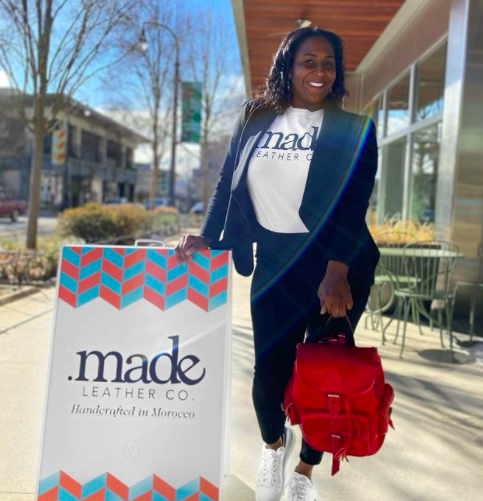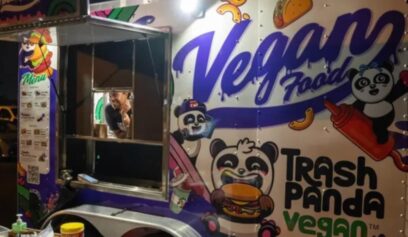Six years ago, Lenise Williams, an attorney and author, traveled to Morocco to speak at a United Nations conference, ultimately discovering an interest in handmade leather goods that would transform her idea of entrepreneurship.

While exploring the city of Marrakech and becoming intrigued by leather tanneries, Williams began formulating an idea for a business that would ultimately allow her to transition from an attorney to an entrepreneur.
“I had been desiring a product-based business for some time,” Williams told Travel Noire. “As a service-based entrepreneur for years, I desired a business in which I did not have to trade my time for money, and could also teach my two sons more about the business/retail industry.”
While on the flight home from Morocco to Atlanta, Williams realized that importing leather handbags from Morocco to the United States could be a viable business. Once she was home, she began researching how to import products.
“I felt that these bags were hidden gems and that people in the United States would appreciate the craftsmanship,” Williams told Black Enterprise.
Williams’ vision turned into an impromptu business plan written on in-flight cocktail napkins, and is now Made Leather Co. The brand features vegetable tanner leather items such as duffle bags, backpacks and accessories.
The products are handcrafted by Moroccan artisans. Customers enjoy Made Leather products because they are one-of-a-kind products that are crafted and colored by hand. Another plus Williams has is vegetable tanning, which doesn’t involve the use of harmful chemicals, as opposed to chromium tanning, which is often used in production in the United States.
“Vegetable tanning is an organic process that is much better for the environment and also for our skin….It is authentic to the style that the bags have been crafted in Morocco for centuries,” Williams told Travel Noire. “After learning more about how much better it is for the environment and skin, we opted to continue our operations in Morocco as opposed to bringing the crafting process domestically.”
Read full story at Finurah here.


